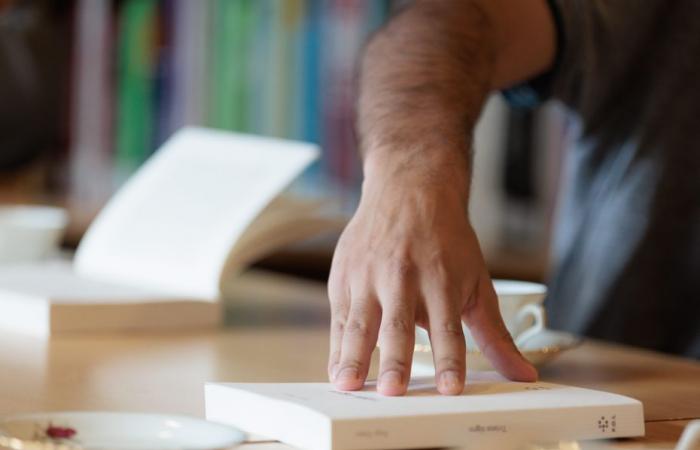
Ten inmates from penitentiary establishments in Île-de-France met on Wednesday at the BNF for literary exchanges. Penultimate step in the Goncourt selection process for inmates before the proclamation of the 2024 winner on December 17.
Company
From daily life to major issues, discover the subjects that make up local society, such as justice, education, health and family.
France Télévisions uses your email address to send you the “Society” newsletter. You can unsubscribe at any time via the link at the bottom of this newsletter. Our privacy policy
“What I like most is that I just heard someone next to me say: I'm really going to reread the book Madelaine Before Dawn (by Sandrine Collette published by JC Lattès) because I like must have read it wrong or I must have read it wrong! Hearing that, I say to myself that perhaps we still had arguments that were convincing.”
On the 18th floor of one of the towers of the François-Mitterrand Library, two prisoners from the Poissy central prison, Jean-Marc and Phillipe (assumed first names) debate with other prisoners from four other penitentiary establishments in the region. Four women, six men, half of them by videoconference and the other half on furlough, have a round table this morning. A literary deliberation organized for the Goncourt selection of 2024 inmates.
As in other Ile-de-France establishments, the inmates of the Poissy central prison, after multiple debates since September, have selected three works from among the 16 books in the Goncourt 2026 selection.
Jean-Marc and Laurent were appointed to defend the literary podium of Poissy. The discussions promise to be frank. The inmates, representing other houses like Fresnes or Versailles, do not visibly share the same literary favorites.
“Be convinced that your opinion matters! “, declares in the preamble Thomas Chardon, bookseller in Poissy, to reassure the prisoners. From the top of tower 2 of the BNF, the view is breathtaking. Before starting the debates, the official speeches follow one another. A solemn first moment. This debate is a new chapter before the proclamation of the winner scheduled for December 17.
The prisoners present have a round table in front of an audience of representatives of the National Book Center, the judicial administration, and the BNF. “We must reassure them that they are completely legitimate to be here today,” explains Thomas Chardon.
Thomas Chardon, debate moderator and bookseller in Poissy.
•
© Jean Forneris
Inmates from the five penitentiary establishments pre-selected seven works which are on the menu for debate this morning. The critical exchanges are courteous, becoming animated when one of the jurors ardently defends her first literary choice. At the end of this session, it will be necessary to vote to elect the two books which will represent the selection of prisoners from Île-de-France during the final and national deliberation scheduled for December 17. This year, 45 penitentiary establishments are participating in this third edition of this Goncourt for prisoners.
Also read : REPORTING. Le Goncourt of the inmates at the Poissy central prison, “reading like that makes me proud!”
Philippe (in video conference from Poissy) argues in favor of Madelaine before dawn. “When I read it, I forced myself not to close the book.” “Captivating! A book that everyone should have read. added an inmate from Fleury-Mérogis.
Around the table, inmates talk about the rejection of certain works which shocked some of them. “Too many crude scenes”, “ideological positions” which do not pass. “Are we allowed to write everything down?” Jean-Marc speaks. “Can we say everything or not in a novel? I believe that we can say everything. We are not obliged to read everything, but in any case, we have the right to write everything in a novel.”
the detainees during the debate at the BNF.
•
© Jean Forneris
“I felt the jurors were at ease, alert, who were ready and who had arguments to make. I felt they were completely competent to talk about books”welcomes Thomas Chardon, the moderator of the debate who has been involved for several years in promoting reading among Poissy inmates.
Also read : REPORTING. Goncourt of prisoners: “until a year ago, this prisoner did not read books”





